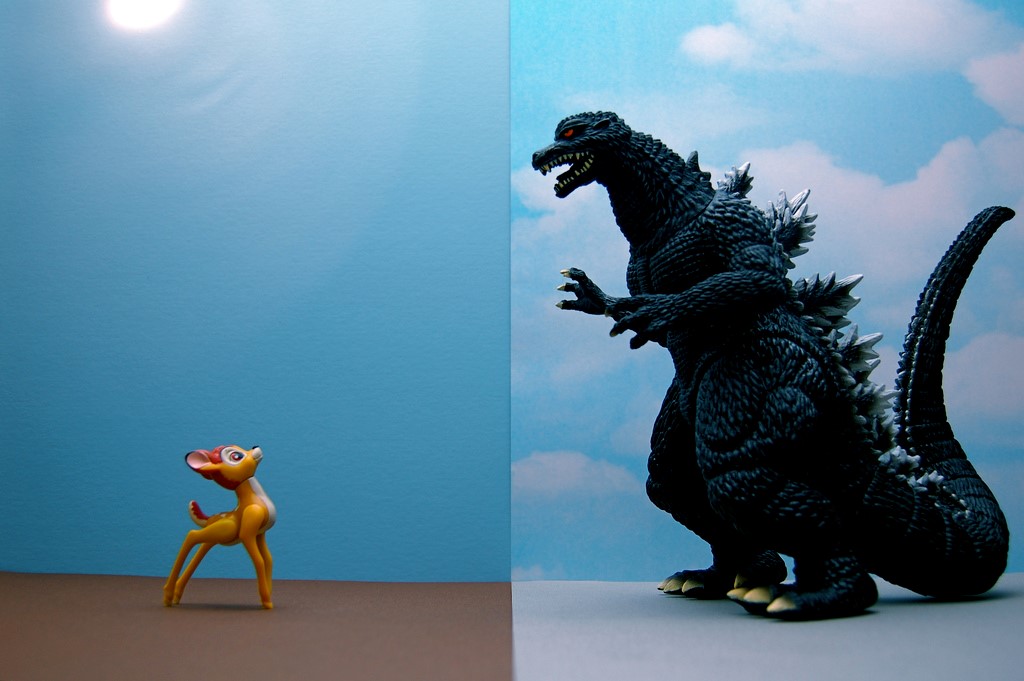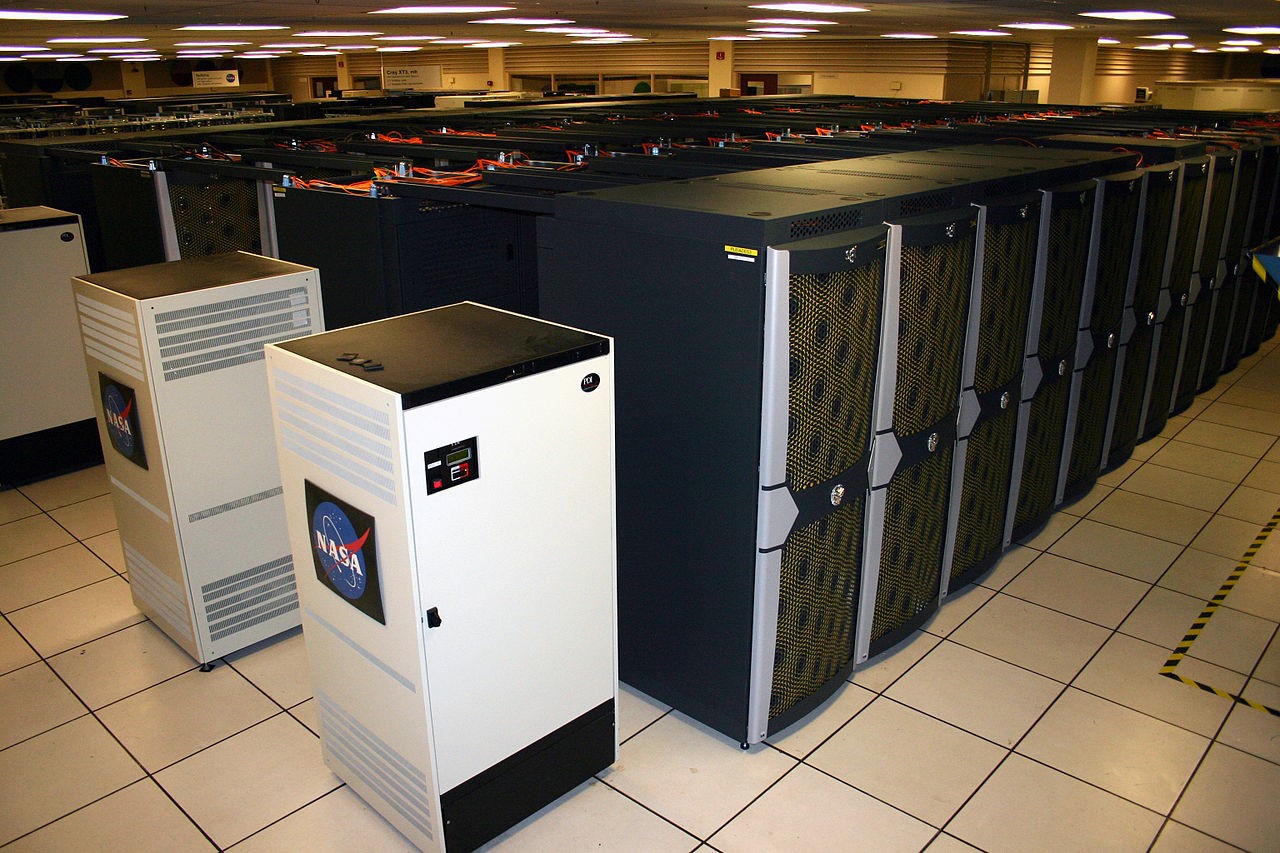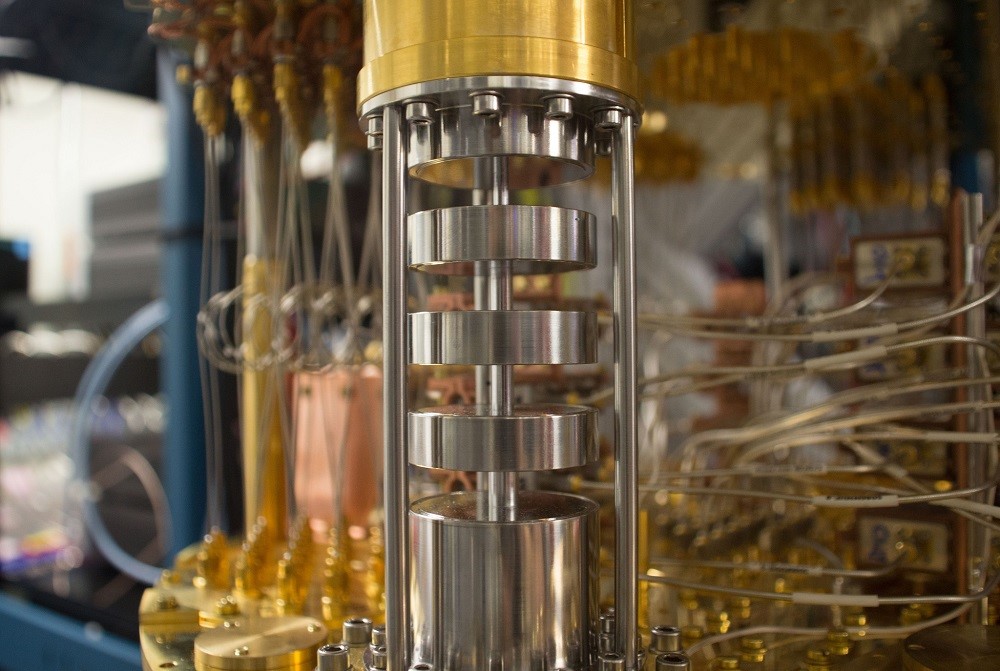IT giant wants to prove quantum superiority next year - what could go wrong
In 2019, Google plans to compete computing machines and compare the performance of its 72-qubit Bristlecone chip with the capabilities of NASA's Pleiades supercomputer. The IT giant plans to show that quantum excellence is attainable. Under the cut - more about the tests and possible difficulties encountered in the company.

/ photo by JD Hancock CC BY
Quantum supremacy is a conditional moment in time when quantum computers learn to solve some computational problems much faster than classical systems. Such tasks, for example, include the enumeration of keys SHA-256.
The theoretical possibility of quantum superiority in October of this year was proved by Sergey Bravy from IBM Research, David Gosset from the University of Waterloo and Robert König from the Munich Institute. They published their research in the journal Science , in which they showed that, under certain conditions, a quantum machine can outrun a classical computing system.
Although the theoretical possibility of quantum superiority has been proven, in practice this has not yet been done. Next year, Google is planning to correct this "misunderstanding."
To prove the quantum superiority hypothesis, Google and NASA will compare the capabilities of the new 72-qubit Google chip, codenamed Bristlecone, and the Pleiades supercomputer, which ranks 24th in the Top500 of the world's most powerful computing systems (5.95 petaflops).
Classical systems so far exceed the performance of prototypes of quantum machines, effectively simulating the operation of quantum chains. Google's quantum chip and NASA's supercomputer will do a series of test calculations. If the Bristlecone chip manages to outperform the Pleiades, then organizations will be able to claim achievement of quantum superiority.

/ NASA PD Photo
The experiment will be conducted on the Google Cloud API platform, since it will not work to place these two cars in the same room. At the same time, for Bristlecone to operate, a number of conditions must be observed: for example, the ambient temperature must be close to absolute zero.
The first test results will be presented in July 2019. Google representatives are confident that Bristlecone will be able to achieve quantum supremacy. The IT giant places its hopes on its efficient computing algorithms and error correction mechanisms, which take into account the “fragility” of qubits, which are destroyed by the external environment .
In May, scientists at Alibaba published a study ( PDF ) that asserted that quantum superiority can only be said when the number of errors in the computing of quantum computers is zero. Even if the car thinks faster, there is no point in it without the right result. And these errors certainly occur when writing (and reading) data into qubits due to the destruction of their quantum state. The more qubits, the higher the chance that they will begin to interfere with each other’s work.
Reach zero value so far no one has managed. In the same Bristlecone, the error rate is 0.6%. And although Google believes that this is enough, in practice everything may turn out differently.
Note that the world is developing several projects that should help create effective mechanisms for correcting errors in quantum computers. For example, Sebastian Krinner (Sebastian Krinner) from the Swiss Higher Technical School of Zurich proposed combining several "simple" qubits into one logical one, reducing their number. But for the practical implementation of this technology will require years of development.
But even if it is possible to implement sufficiently effective error correction mechanisms for quantum computers, another difficulty arises. The computing power of classic supercomputers is not in place . More and more powerful systems are being developed , so even if Google succeeds in surpassing Pleiades, in the future classic cars may again surpass quantum ones.

/ photo IBM Research CC BY-ND
One of the companies involved in the quantum race is Intel. Of the latest achievements of the company - a computer with 49 qubits. According to the roadmap, in the next 5-7 years, the IT giant plans to build a 1000-qubit system.
The company assumes that with so many qubits, the superiority of quantum computers over traditional ones is ensured. However, there are those who believe that this will require a machine with at least a million qubits.
Another company working in this area is startup Rigetti. In October, his representatives announced a million dollar reward to anyone who would prove the superiority of the qubit system over a classic computer.
To spur research, the company has developedA cloud service for creating and running quantum algorithms that is accessible to everyone. Rigetti experts expect that experiments with a cloud and quanta will have a positive effect on the development of both technologies.
PS A couple of articles from our corporate blog:
PPS Materials from our Telegram channel about IaaS and not only:

/ photo by JD Hancock CC BY
A few words about quantum supremacy
Quantum supremacy is a conditional moment in time when quantum computers learn to solve some computational problems much faster than classical systems. Such tasks, for example, include the enumeration of keys SHA-256.
The theoretical possibility of quantum superiority in October of this year was proved by Sergey Bravy from IBM Research, David Gosset from the University of Waterloo and Robert König from the Munich Institute. They published their research in the journal Science , in which they showed that, under certain conditions, a quantum machine can outrun a classical computing system.
Although the theoretical possibility of quantum superiority has been proven, in practice this has not yet been done. Next year, Google is planning to correct this "misunderstanding."
The essence of the experiment of Google
To prove the quantum superiority hypothesis, Google and NASA will compare the capabilities of the new 72-qubit Google chip, codenamed Bristlecone, and the Pleiades supercomputer, which ranks 24th in the Top500 of the world's most powerful computing systems (5.95 petaflops).
Classical systems so far exceed the performance of prototypes of quantum machines, effectively simulating the operation of quantum chains. Google's quantum chip and NASA's supercomputer will do a series of test calculations. If the Bristlecone chip manages to outperform the Pleiades, then organizations will be able to claim achievement of quantum superiority.

/ NASA PD Photo
The experiment will be conducted on the Google Cloud API platform, since it will not work to place these two cars in the same room. At the same time, for Bristlecone to operate, a number of conditions must be observed: for example, the ambient temperature must be close to absolute zero.
The first test results will be presented in July 2019. Google representatives are confident that Bristlecone will be able to achieve quantum supremacy. The IT giant places its hopes on its efficient computing algorithms and error correction mechanisms, which take into account the “fragility” of qubits, which are destroyed by the external environment .
Why the Google experiment may fail
In May, scientists at Alibaba published a study ( PDF ) that asserted that quantum superiority can only be said when the number of errors in the computing of quantum computers is zero. Even if the car thinks faster, there is no point in it without the right result. And these errors certainly occur when writing (and reading) data into qubits due to the destruction of their quantum state. The more qubits, the higher the chance that they will begin to interfere with each other’s work.
Reach zero value so far no one has managed. In the same Bristlecone, the error rate is 0.6%. And although Google believes that this is enough, in practice everything may turn out differently.
Note that the world is developing several projects that should help create effective mechanisms for correcting errors in quantum computers. For example, Sebastian Krinner (Sebastian Krinner) from the Swiss Higher Technical School of Zurich proposed combining several "simple" qubits into one logical one, reducing their number. But for the practical implementation of this technology will require years of development.
Others are trying to solve the problem by reducing the entropy and combining several quantum systems into one big one. For example, in a blog, we talked about researchers from the University of Pennsylvania and their concept of the demon Maxwell, as well as about the teleportation of quantum gates, which scientists at Yale University showed.
But even if it is possible to implement sufficiently effective error correction mechanisms for quantum computers, another difficulty arises. The computing power of classic supercomputers is not in place . More and more powerful systems are being developed , so even if Google succeeds in surpassing Pleiades, in the future classic cars may again surpass quantum ones.

/ photo IBM Research CC BY-ND
Contributions from other companies
One of the companies involved in the quantum race is Intel. Of the latest achievements of the company - a computer with 49 qubits. According to the roadmap, in the next 5-7 years, the IT giant plans to build a 1000-qubit system.
The company assumes that with so many qubits, the superiority of quantum computers over traditional ones is ensured. However, there are those who believe that this will require a machine with at least a million qubits.
Another company working in this area is startup Rigetti. In October, his representatives announced a million dollar reward to anyone who would prove the superiority of the qubit system over a classic computer.
To spur research, the company has developedA cloud service for creating and running quantum algorithms that is accessible to everyone. Rigetti experts expect that experiments with a cloud and quanta will have a positive effect on the development of both technologies.
PS A couple of articles from our corporate blog:
- How IaaS helps grow your business: three tasks that the cloud will solve
- Serverless computing in the cloud - a trend of modernity or necessity?
PPS Materials from our Telegram channel about IaaS and not only:
